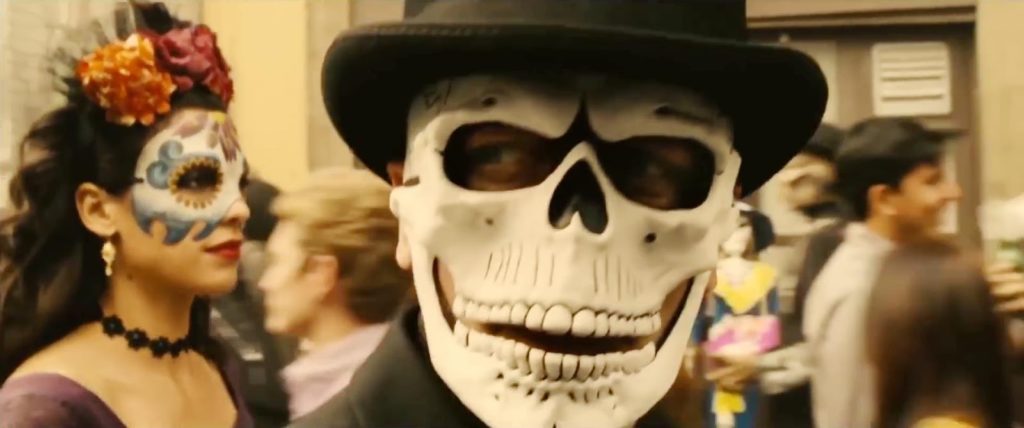
I’ll admit it, I enjoy the James Bond films. It’s a guilty pleasure, and I would not defend them if anyone said they are bad, I know that. But I enjoy them nonetheless. I have since I was a kid and first saw Goldfinger (1964) at a sleepover in fourth grade. My friend Jason and I watched every Bond movie that year (at least all of the ones that had come out at that point). In recent years, my tastes have developed and changed of course, light years beyond that of my fourth grade self. In fact, I hadn’t seen a Bond film in a long time till I revisited the Roger Moore titles this last summer. And I have to say that The Man With The Golden Gun (1974) is now my favorite Bond film (and it’s not just because I am an avid fan of classic British Horror films either).
The James Bond franchise has a lot of problems, but the overriding one that plagues every incarnation of the character is how to blend the campy aspects of Ian Fleming’s novels with the pulpy grit that also exists in Fleming’s writing. The Daniel Craig titles Casino Royale (2006) and Quantum Of Solace (2008) lean toward the grittier side of things, only acknowledging the camp aspects of the franchise when the filmmakers feel obligated to interject familiar characters like M and Q to create a unifying sense of continuity. Whereas the Timothy Dalton and Pierce Brosnan Bond films worked toward, and once or twice, succeeded at achieving this precious balance. Yet, these contemporary incarnations strove so hard to keep the character relevant by way of transporting the narratives into a vein of hot-button issues that they managed to move away from the book. The first Bonds, Connery, Moore and I suppose George Lazenby embraced the Camp aesthetic more than anything, most likely because, in the sixties particularly, that brand of humor was so chic. And the Bond films handled their camp so well that it wasn’t till the mid-eighties that audiences grew tired of it.
This gets to why The Man With The Golden Gun is my favorite Bond film. Directed by veteran British filmmaker Guy Hamilton, whose background had been in comedy features before joining the Bond Franchise, the film benefits from an excellent sense of timing. Moments of pulp are undercut with moments of camp, and vice versa. This balance is extraordinary and allows the film to, at times, transcend the genre of “sixties spy film”. However, it is that The Man With The Golden Gun‘s brand of camp is that same sixties chic that permeates all of the Connery and Moore films that, when balanced, gives the film the authenticity of Fleming that Dalton, Brosnan and Craig all lacked. In fact, the campy side of the late-eighties Bond through to Daniel Craig is much more like that of the Stallone and Schwarzenegger blockbusters of the same time period.
Luckily, it looks like history is about to repeat itself in a good way. Sam Mendes’ two Bond films, Skyfall (2012) and the new Spectre (2015) each show signs of returning to the classic formula, away from the over-the-top “realist” posturings of Craig’s first two Bond outings. Javier Bardem and Christoph Waltz as Blofeld are two of the campiest and outrageous Bond villains since Jonathan Pryce as an evil Steve Jobs in Tomorrow Never Dies (1997). The dialogue and theatricality of these performances is right out of the Roger Moore era, albeit with a hipper sense of irony now trending in all espionage thrillers and detective films courtesy of Sherlock. The only problem remaining, and it is a waning problem, is that these villains don’t really seem to fit in with the darker sensibility of the Craig films. Javier Bardem’s performance was, unfortunately, left out in the cold by a negation of the classic gadget and girls formula that has managed to seep into Spectre.
It is, unfortunately, still too early to tell if this will be a permanent shift in the aesthetics of the franchise. It would be nice to see the James Bond films begin to lighten up and not take themselves so seriously again, but when contrasted with the trends of the Marvel and DC blockbusters, Spectre begins to look like an anomaly.
